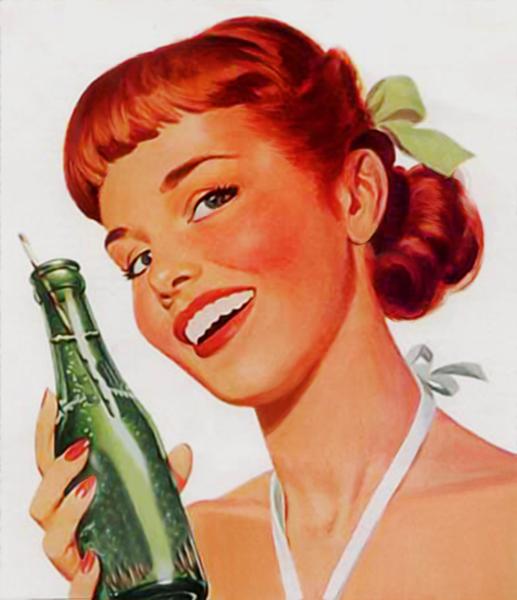“If you are obsessed with sugar-sweetened drinks, then you need to think twice before having them regularly,” MSN reported on May 7. “A new study led by Washington University School of Medicine has found a link between drinking sugar-sweetened beverages and an increased risk of developing colorectal cancer in women under age 50." A dozen other news stories reported more or less the same conclusion, but, as is often the case in science, the situation is a little more complex than two sodas doubling women's cancer risk.
Phrases like “a link between” as used in health reporting are tricky because they can mean so many things. An epidemiological study that suggests a cause-and-effect relationship between a food and a particular health outcome is putting forth a plausible narrative that may or may not comport with all the data. In this case, the researchers have an interesting working hypothesis that needs validation, an observation they made as well.
The more important takeaway is that, no matter how a study was conducted or how limited its results, everybody has a tendency to draw the conclusion they're already partial to. This is, arguably, the biggest problem with how we collectively think about science today.
The study
The researchers analyzed the health outcomes of 95,464 female registered nurses (25–42 years old) from the Nurses’ Health Study II, beginning in 1989. Sugar-sweetened beverage (SSB) intake was assessed every four years using “validated semi-quantitative” food frequency questionnaires. A subset of participants (41, 272) reported SSB consumption through ages 13-18 using “a validated high school-FFQ in 1998.” The researchers “documented a total of 109 early-onset colorectal cancer (EO-CRC) cases over up to 24 years of follow-up.”
Compared with women who consumed less than one serving a week of SSBs in adulthood, those who consumed two or more servings a day “had a more than doubled risk of EO-CRC, with a 16% higher risk per serving/day increase. Each serving/day increment of SSB intake at age 13–18 years was associated with a 32% higher risk of EO-CRC.”
Conclusion:
While our sample size was limited and this finding requires further validation … our study provides preliminary evidence linking SSB intake across different life stages with risk of EO-CRC. Further studies with larger sample sizes in more diverse populations are needed to validate these findings.
That's a perfectly reasonable conclusion based on the study's results. But this subtle analysis was oversimplified by mainstream reporters (arguably with the help of the researchers), who were looking for a sexy result to put in a headline. Consider MSN's summary of the paper:
This observational study can't demonstrate that drinking sugary beverages causes this type of cancer or that drinking milk or coffee is protective, but the researchers said that replacing sweetened beverages with unsweetened drinks, such as milk and coffee, is a better choice for long-term health. "Given this data, we recommend that people avoid sugar-sweetened beverages and instead choose drinks like milk and coffee without sweeteners," [senior author Yin] Cao said.
That's quite a leap from the study to the MSN article. Consuming less sugar is almost certainly a smart nutritional choice for most of us. But recommending people do so based on the results of this study is a stretch, especially right after acknowledging that it could not demonstrate a causal relationship between sugary drinks and cancer.
Cancer epidemiologist Geoffrey Kabat, who has also investigated the link between sugar and colorectal cancer, summed up the key issue in an email:
Researchers, who are very savvy at navigating the shoals of publishing, are good at acknowledging the limitations and noting that an observational study cannot provide proof of causation. But then they very often go ahead and speak about their results as if they provided strong evidence … The basic fact is that a doubling of the relative risk is a modest increase in risk.[1] So, in many instances, like this one, researchers get a lot of mileage out of what is a very modest result.
Inconsistent results
The contradictory evidence for a sugar-colon cancer link underscores Kabat's point. “[E]pidemiologic evidence on the role of SSBs in colorectal carcinogenesis remains inconclusive,” the authors of the new paper wrote, noting that at least 13 previous studies failed to find a link between the disease and consuming sugary drinks.
Other researchers have also reported “a lack of association between high intake of added sugar, high-glycemic-index and glycemic load diets and risk of colon cancer.” Some studies, meanwhile, have found that higher sugar intake may boost men's colon cancer risk, but not women's, while others have found that high-carbohydrate diets (that include sugary drinks) may have a protective effect for women.
This is no reason to start drinking Coke in hopes of avoiding colorectal cancer. The point is that the research on this question is wildly inconsistent. There is a plausible mechanism through which high sugar intake could cause colorectal cancer (at least in mice), but there's no way to know for certain yet.
All this is readily apparent if you read the Washington University paper. But, again, the subtleties, inconsistencies, and preliminary nature of the data are minimized by the time the public sees these results on Google News. Whether the subject is sugar, pesticides, electronic cigarettes, 5G or any number of other public health concerns, consumers are routinely told that small studies with crucial limitations reinforce ideas we already assume are true.
As long as this continues, we can't be shocked that people have a distorted understanding of so many science topics.
[1] See this article for a discussion of the difference between relative and absolute risk. Reporting the former without the latter can paint a misleading picture. For example, a hypothetical drug that reduces death rates from 0.002% to 0.001% reduces mortality by 50%.




